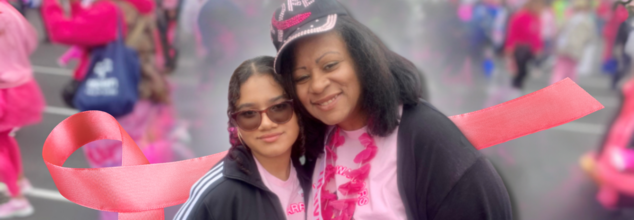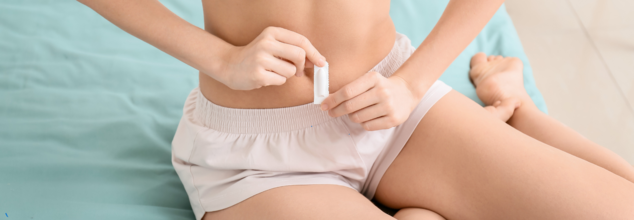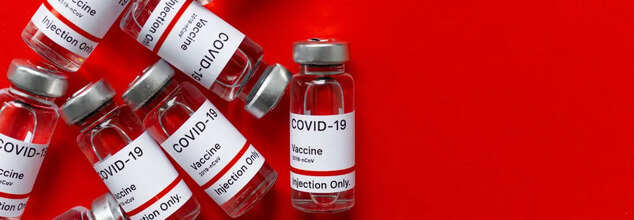- Health Conditions A-Z
- Health & Wellness
- Nutrition
- Fitness
- Health News
- Ayurveda
- Videos
- Medicine A-Z
- Parenting
- Web Stories
'I Didn't Want To Look Weak... But You Have To Let Help In' Breast Cancer Survivor Found Hope In Community

(Credit-American Cancer Society)
Cancer diagnoses is one of the most devastating news that one receives. The future after the revelation may seem bleak, but as many cancer survivors have said, one must power through and try their best. During these times, you lean on your close ones and friends for help, even if it is just for emotional support. Angela Torres always looked out for others, and helped them as best she could, until it was her who needed the help.
Angela is a busy mom with three kids and a full-time job. She also runs two food banks in the Bronx, New York City. She took over this important work from her mother, who also believed strongly in helping the community. However, when Angela found out she had breast cancer, it made her rethink everything about herself.
Angela said that before her diagnosis, she was always the one taking care of everyone else. She admitted, "I didn’t want anyone to think I was weak."
Finding a Lump and Diagnosing Cancer
At 39, Angela felt a small lump in her breast. Tests showed it was stage 0 breast cancer, also called carcinoma in situ. This meant it was very early, and she didn't need more treatment. This experience made Angela realize how important it was to get regular mammograms and checkups. She also encouraged her loved ones to do the same.
A few years later, Angela's sister had a mammogram, and doctors wanted to carry out more tests because they suspected something serious. The results, fortunately, showed no serious signs.
This scare made Angela's sister urge her to get another mammogram sooner than planned. Angela remembered, "She kept saying, ‘I just have a bad feeling.’ So I moved my mammogram appointment up six months, mostly just to get her to quit talking to me about it.”
Angela clearly remembers getting the call with the results of that mammogram. She was ironing her son's shirt for his prom the next day. Her doctor told her they had found several tumors that she would never have been able to feel on her own.
More Serious Diagnosis and a Change in Plans
Angela had another surgery to remove the tumors and take samples from her lymph nodes. Sadly, the tests showed that the tumors were cancerous. Doctors found different kinds of breast cancer cells. Most were hormone-positive, but one was triple-negative breast cancer (TNBC). Because TNBC can be more aggressive, Angela's treatment plan had to change. She would need surgery, chemotherapy (chemo), and radiation.
Treatment was a long and difficult process. After surgery, Angela had four months of chemo. Then, she had a few weeks to recover before starting daily radiation for several weeks. Her doctor explained that the side effects of chemo and radiation can build up over time. Angela wasn't sure what that meant for her life. But when she started radiation and experienced more side effects, she understood. Some of the side effects from chemo were still bothering her, and the radiation added to them.
How did Community Support Helped Her Prognosis?
Even though the treatment was hard, it worked. Angela believes that her positive attitude played a big part in getting through it. She also learned to accept help from others during her treatment. This was new for Angela, and she said it was the hardest thing to adjust to. "I just didn’t want to feel weak. I didn’t want people to give me that ‘awww’ look. I wanted to be superwoman and just power through, but you have to allow the help in," she explained.
American Cancer Society (ACS) explained that emotional support is crucial for better chances of survival during cancer. A strong emotional support helps people going through cancer have a more positive outlook, better changes in the cancer, and reports show that it helps them better their life quality immensely.
Small things like making brief calls, ending the call with ‘I’ll be in touch soon’, calling when it is suitable for them, returning their messages as soon as you can, checking in with their caretaker to know if they need anything.
True to her nature, Angela strives to help more people, she has spoken at events, at interviews, and with friends and family. Her goal is to use her experience to help save lives and talk about cancer honestly. She thanks ACS for their help and contribution, and gives people hope for the future and love “Nobody wants to go through this, but they make you feel like they're with you for the fight. That means everything.”
That 'One Thing' That Doesn’t Belong Anywhere Near Your Lady Parts

Credits: Canva
Before you reach for another wipe, spray or “feminine fresh” gel, hit pause. Because here’s the uncomfortable truth: your vagina doesn’t need it and definitely doesn’t want it. Despite what the feminine care aisle might be selling, your vagina is not a high-maintenance diva in need of lavender-scented lotions or internal rinse rituals. It’s actually one of the most self-sufficient parts of your body. Yes, your vagina is a self-cleaning organ, designed to maintain its own delicate balance without a single pump of perfumed soap. But the booming feminine hygiene industry is banking on your doubt—and potentially compromising your health in the process.
So what’s the one thing you should never let near your lady parts? It’s douching. But it’s not the only culprit. Here’s the deep dive into why your vagina wants you to back off the products, how you might be doing more harm than good, and what science-backed swaps truly support your body’s natural balance.
Why Vaginal Soaps and Washes Are Overrated?
It’s easy to be seduced by pastel packaging and promises of feeling “extra clean.” But according to Professor Willa Huston, a women’s health microbiologist at the University of Technology Sydney, using these soaps does far more harm than good.
“The tissue in this area is much more sensitive and delicate than the skin on your arm,” she explains. “Chemicals used in scents can irritate, damage tissue, and increase the risk of infections.”
Your vulva (the external part of your genitalia) can be cleaned with warm water, and if soap is truly needed, it should be mild, unscented, and used sparingly—never internally. Because every time you over-clean or scrub your way to “freshness,” you risk wiping out the very bacteria that are there to protect you.
What is the Problem with Feminine Wipes?
Marketed as on-the-go saviors for sweaty days or post-workout freshness, feminine wipes are often anything but gentle.
“They can disrupt the natural pH and reduce beneficial bacteria,” Huston warns. These bacteria are essential for maintaining your vagina’s protective microbiome.
While they may be convenient in emergencies, they shouldn’t become part of your daily routine. If you absolutely must use them, choose pH-balanced, fragrance-free versions—and treat them like you would dry shampoo: a temporary fix, not a lifestyle.
Sprays, Deodorants, and the Shame Game
Let’s be real, your vagina shouldn’t smell like a tropical smoothie.
Using sprays and deodorants down there can cause allergic reactions, irritation, and even mask symptoms of infections like bacterial vaginosis or yeast infections.
Instead of covering up, tune in. If you notice an unusual or persistent odor, it’s your body’s way of waving a red flag. Call your doctor—don’t cover it in coconut-scented mist.
The One Thing That Absolutely Doesn’t Belong Inside You: Douching
If there’s one thing experts agree on, it’s this: never douche.
Douching flushes out the vagina’s natural defenses, increasing the risk of infections, pelvic inflammatory disease, and even fertility problems. According to multiple studies, it disturbs the pH, damages healthy bacteria, and can cause more harm than any other hygiene habit. In short, it’s a hard no.
Your vagina has its own built-in cleaning crew—there’s absolutely no need to pressure-wash it.
Link Between Talc and the Ovarian Cancer
For years, talc-based powders were sold as a solution for “staying fresh.” But mounting concerns over their possible link to ovarian cancer have changed the narrative.
The World Health Organization classifies genital use of talc as a possible carcinogen, and while research is ongoing, many gynecologists urge caution.
Skip the powders, your body’s natural moisture isn’t a problem that needs “fixing.”
When Creams Help And When They Don’t?
Not all creams are villains. For women experiencing dryness, particularly during or after menopause, certain vaginal moisturizers can offer real relief and this is key choose products specifically formulated for intimate use. Avoid anything with fragrances or harsh additives. When in doubt, consult your OB-GYN for a tailored recommendation.
Menstrual Products
Tampons, pads, and menstrual cups are safe when used correctly. But bad habits—like leaving a tampon in too long or using scented sanitary products—can irritate and even lead to infections.
Stick with unscented, breathable materials, change tampons or pads every 4–6 hours, and sanitize menstrual cups thoroughly between uses.
What Your Vagina Actually Wants?
The golden rule? Less is more.
Here’s what gynecologists recommend for healthy vulvovaginal care:
- Wash the vulva with warm water only
- Avoid internal cleaning or douching
- Wear breathable cotton underwear
- Opt for unscented, pH-balanced products only when truly needed
Seek medical advice if anything feels off—itching, burning, discharge, or odor. Remember, your natural scent is part of your body’s ecosystem. It’s not something to hide—it’s something to understand and respect.
Your vagina doesn’t need to smell like a field of roses or feel squeaky clean 24/7. It needs balance, support, and space to do what it does best: protect, regulate, and renew.
So skip the sprays, ditch the douches, and save your wipes for long flights. Trust your body—it’s smarter than any ad campaign. And if something feels off? Don’t DIY it with drugstore products. Call your doctor because the only thing that belongs near your vagina is respect for its natural intelligence and for your own wellbeing.
Fact Check: Do COVID Vaccines Contain HIV?

Credit: Canva
COVID vaccines saved millions of lives. As countries worldwide raced to provide relief and protection from the deadly coronavirus, rumours began to circulate about vaccines. Hundreds of false reports emerged following major developments. One such allegation was that the vaccines contained viruses that cause AIDS (HIV). But are these claims factual, or do they need to be debunked?
Misconceptions about these vaccines stem from misunderstandings about how the immune system and vaccines work. It is crucial to clarify that AIDS is caused by HIV, which is entirely different from SARS-CoV-2, the virus responsible for COVID-19.
Do COVID-19 Vaccines Contain HIV?
No, COVID-19 vaccines do not contain any virus that causes AIDS. The vaccines use messenger Ribonucleic Acid (mRNA) technology, which teaches our bodies how to recognise and combat the coronavirus. They do not contain any live viruses, including HIV.
What Are The Different Types Of COVID Vaccines?
Each coronavirus vaccine causes the immune system to create antibodies, which fight infection with SARS-CoV-2 vaccine. COVID-19 vaccines use a harmless version of a spikelike structure called an S protein on the surface of the COVID-19 virus. There are multiple types of coronavirus vaccines.mRNA vaccine
An mRNA vaccine gives cells instructions for how to make the S protein found on the surface of the COVID-19 virus. After vaccination, the body's muscle cells begin making the protein pieces and showing them on cell surfaces. This causes the body to create antibodies. Then if you catch the COVID-19 virus, these antibodies are used to help clear out the virus.
Once the protein pieces are made, your cells break down the instructions and get rid of them. The mRNA in the vaccine doesn't enter the nucleus of the cell, where DNA is kept. Both the Pfizer-BioNTech and the Moderna COVID-19 vaccines use mRNA.
Vector vaccine
In this type of vaccine, material from the virus that causes COVID-19 is placed in a modified version of a different virus. This different virus is called a viral vector. The viral vector gives cells instructions to make copies of the COVID-19 virus S protein.
Once the cells display the S proteins on their surfaces, the immune system responds by creating antibodies and defensive white blood cells. If infection with the virus that causes COVID-19 happens later, the antibodies help clear out the virus.
Viral vector vaccines can't cause infection with the COVID-19 virus or the viral vector virus. The Johnson & Johnson COVID-19 vaccine is a vector vaccine that's no longer used in the United States.
Protein subunit vaccine
Subunit vaccines include only the parts of a virus that best stimulate the immune system. This type of COVID-19 vaccine has harmless S proteins in it. Once the immune system recognises the S proteins, it creates antibodies and defensive white blood cells. If infection with the COVID-19 virus happens later, the antibodies help clear out the virus. The Novavax COVID-19 vaccine is a protein subunit vaccine.
Eye Care Recall Hits 75,000 Products - Here's What You Can Use Instead

Credits: Canva
If you are someone who suffers from dry and itchy eyes, a recent update may not be the best news for you. As per the enforcement report from the Food and Drug Administration (FDA), 75,000 cases of eye drop solution were voluntarily recalled nationwide by the BRS Analytical Service, which is a pharmaceutical testing lab.
Why Are These Products Recalled?
The recall came in the backdrop of FDA audit at BRS Analytical Service, which found a number of Current Good Manufacturing Practice (cGMP) deviations. These are a set of regulations enforced by the FDA to ensure that manufacturers use safe practices to produce pharmaceutical products, reports NBC news.
"cGMP deviations may lead to products of unacceptable quality, and it is not possible to rule out patient risks resulting from use of these products,” said AvKare, which is a manufacturer of medical, surgical, and pharmaceutical items, which had originally reported the recall.
Furthermore, as per the enforcement record, the recall is also "due to a lack of assurance to sterility". These products are also described as "eye lubricants", which help relieve dry and irritated eyes.
Which Products Have Been Recalled?
NBC news reports that the recall includes ophthalmic solutions shipped over a two year period from: May 26, 2023 until April 21, 2025, according to AvKare.
- NDC# 50268-043-15 Artificial Tears Ophthalmic Solution
- NDC# 50268-066-15 Carboxymethylcellulose Sodium Ophthalmic Gel 1%
- NDC# 50268-068-15 Carboxymethylcellulose Sodium Ophthalmic Solution
- NDC# 50268-126-15 Lubricant Eye Drops Solution
- NDC# 50268-678-15 Polyvinyl Alcohol Ophthalmic Solution
So, What Can You Do Instead?
Dr Anita Sethi, who is Principal Director and HOD Ophthalmology, Max Multi Specialty Centre at Panchsheel Park recommends to stay away from natural remedies like haldi (turmeric) or ginger from putting inside the eye.
In absence of eye lubricants, she recommends certain daily habits that can help protect the eyes from dryness. "In the extremely dry and hot weather, we need to protect our eyes by wearing sunglasses or caps and avoid the direct dust and wind going into the eyes when we are sitting in an air-conditioned room or the fan avoid the blast directly in your face, like when you're driving. Keep the vents so that it is away from your face and not going directly into the eyes."
When asked if there are anything one can eat to ensure their eyes are not dry, she said, "food and nutrients that help with dry eye basically just maintaining the health of the eye, which is foods rich in vitamin E, antioxidants. Coloured vegetables and fruits and even maintaining your thyroid and vitamin D levels because these also contributes to dry eye."
The key to ensure that your eyes are protected from environmental factors like sun, dust, and eat, especially for those who work outdoors or spend long hours on screen, she recommends investing in good sunglasses with ultraviolet protection.
"For those who are using computers a lot, you need to blink your eyes constantly, take breaks in between, and drink a lot of water. Dehydration is also contributing factor to dry eye." She also recommends using a zero number protective glasses and computer glasses that can decrease strain and dry eye.
© 2024 Bennett, Coleman & Company Limited

